Final
Deadline
April 16, 2026
Judging
Date
May 18, 2026
Winners
Announced
June 10, 2026
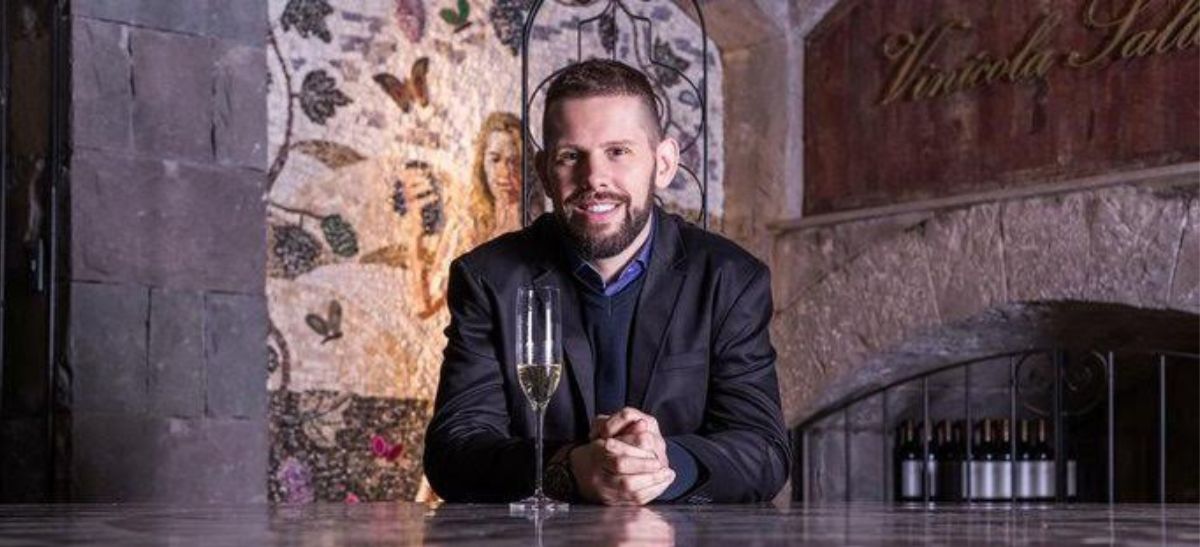
For over a century, the Salton Family has woven a rich tapestry of tradition, innovation, and sustainability into the fabric of Brazilian winemaking. Originating from the Veneto region of Italy, Antonio Domenico Salton embarked on a journey to Brazil in 1878, laying the foundation for what would become a renowned winery deeply rooted in the heart of Rio Grande do Sul. From humble beginnings cultivating grapes to becoming leaders in the domestic and international wine markets, the Salton Family's story is one of resilience, vision, and commitment to quality. In this editorial interview, we delve into the history, journey, and forward-looking strategies of the Salton Family, as they continue to shape the landscape of Brazilian viticulture. We speak to Mauricio Salton, CEO of Salton Wines and 04th generation of the Salton family in Brazil.
The Salton family came from Italy, out of a situation of extreme crisis experienced especially in northern Italy, and came to Brazil with the promise of finding a prosperous region. However, they had to explore a region basically from scratch. At the time, there was not much to eat - even salt was a luxury item since the available food was unseasoned.
Over the years, the families that remained in the region began to organize themselves. Antonio and his son Paulo were key figures in the region, guiding each family to follow a structure or process - so that families didn't do the same things, but carried out complementary activities, bringing a certain balance to the community.
The wine culture began gradually in the family, once in Italy, the Salton family essentially worked with stones to build houses.
It was in the 1930s that they began to look deeply into the wine industry. They spent years learning, qualifying, and maturing their products and the Brazilian market.
Antonio played an important role in organizing the community at the time. But unfortunately, he passed away early. The company was formally founded in 1910, but there are informal records of operations before that. It was in 1910 that Paulo structured the company and formalized it since he was Antonio’s eldest son, and this became necessary after Antonio Domenico's death.
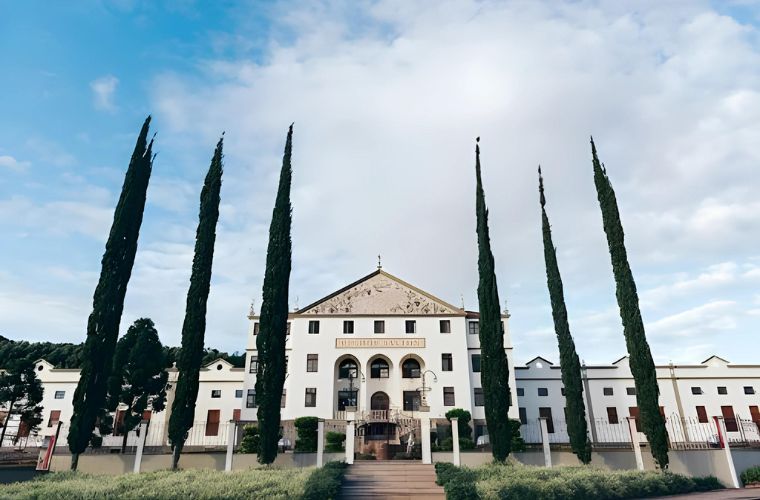
On a family level, we can talk about the losses during the trip from Italy. Then there was a region that offered nothing in structure and support. The family had to start the process from scratch, and they prospered. Questions of resilience, a more purposeful look to the future.
And then, there was Paulo taking over the company after a very difficult loss, a family with children still young, and he took on a lot of responsibility from a very early age. These first moments were very crucial and involved the transformation of the company, which required knowledge of the segment in which it operated, and Paulo's death, also at an early age, but then it was able to structure itself a little better because there was already a more formalized company, with a market and operations.
These values that we mention on a daily basis, are values that have always been effectively demonstrated by example from father to son in this business. Even in an informal way, it was very close to the company. So, we've managed to keep this in the company: this ability to overcome challenges, to be resilient, to transform the business. These are proofs. The company has had challenging moments and losses along the way and has always bounced back. Even though the crises may have hit hard, the company has always been able to quickly restructure itself.
Ever since the 1980s, the company has changed: transitioning from the second to the third generation, there has been a change in terms of the concept of work, and there has been an obligation for managers to have qualifications, degrees or courses. Before that, directors didn't necessarily have qualifications. My own grandfather only had an elementary school education. Management was much more about experience, about day-to-day life. It was something very fragile in terms of company management and with many family conflicts in the confusion of what is private interest and what is organizational interest. So, the third generation comes with this aim of qualification and of dissociating what would be an extension of their patrimony: company-company, family-family. Private assets became something separate. This was a revolution for the company. Before, Salton had 10 family directors and now it has 5 or 6 directors, not necessarily family members. So, a process of market professionals began, and the directors who remained had to pass some qualification tests to be able to take on these more important positions. And today there is an extension of this work. The requirements have gotten stricter, here we have all the advice we need for this transition process, it's a more robust company, with more refined management, but always with a market outlook. The directors have degrees, post-graduate degrees, international experience, and different visions to add to the process and we always preserve the company's culture, both in the human aspect and in the aspect of values that we have absorbed over the course of our career. All of our directors who are family members have had experience in the company, even if informal, since childhood. Contact with the company, getting to know its process by process and being something more constructive, having access to simple positions such as weighing grapes, doing tastings, working as a supermarket stocker, and customer service. So, these are situations in which everyone went through the various stages of the company until they received an opportunity and demonstrated their ability to take on greater responsibilities.
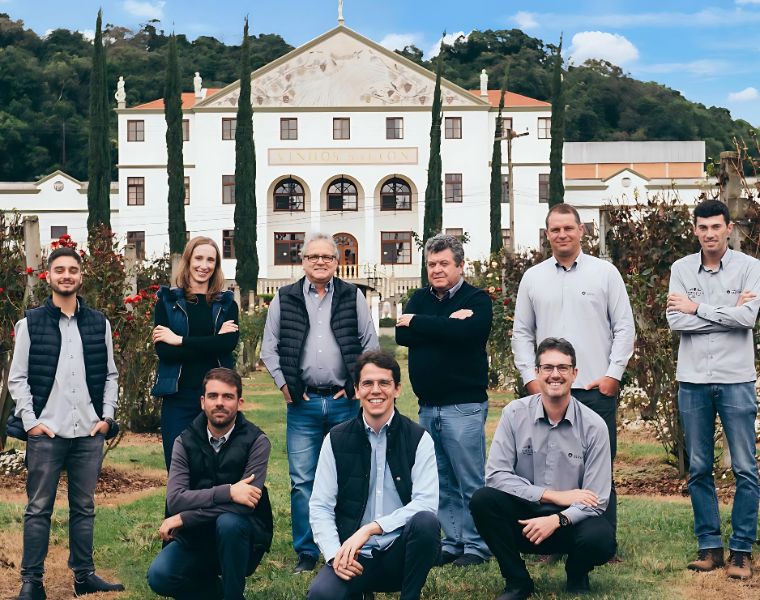
The family heritage aspect is very strong in our case. We have a very well-structured purpose, the company always wants to show itself to be qualified, it is a correct company, it has this profile of resilience and perseverance, which is fundamental in the market we operate in, especially in Brazil, which is a very unstable country. And, as far as building the culture is concerned, Salton has always formed teams that are well-identified with the company, with our objectives, providing positive working environments. So, in this line of work, we have learned from experience, from previous management, and from situations that have been passed on from generation to generation. This maintenance of a warmer, more harmonious culture, but one that pursues results, is what has been an important key to our success.
To work very hard on our Salton brand in terms of discovery for the market. For many years, we worked with names that were not directly associated with the brand and were more popular products. When we started working in a more refined segment in the 1990s, with higher value-added products such as sparkling wines, we naturally had to prepare the brand for this. This was because the market knew Salton for more accessible and popular products. During this period, we had to make it more clear to the consumer who Salton was and what the new chapter of the story was.
And, as much as we were investing a lot in viticulture, oenology, and technical processes, we needed to communicate this to the market. This work took many years, until we managed to achieve consistency in our products and a positive perception in terms of the message that was shared. A true validation. That's why, no matter how much of communication and marketing work we have done, we also had to mirror this consistency in the technical part.
We ended up advertising in more general media such as television and magazines, then moving on to more specialized ones. There were many strategies, including merchandising with tastings, point-of-sale materials, and billboard advertising. All this combined with an important relationship with specialists, as well as a constant relationship with associations in the world of wine.
In terms of brand, Salton is Brazil's oldest family winery in operation. It has overcome a great number of challenges throughout its history, has been producing sparkling wines for many decades, and has been a protagonist in this market shift, finding an identity for the product. Salton was the protagonist in connecting sparkling wine and Brazilian wine with the market.
We managed to find a vocation, an identity that was trustworthy and that mirrored what Brazilians are and what the Brazilian market is. We have a very good consistency in terms of perceived quality in the market and a very good cost benefit ratio. This is because our products are very well valued by our customers.
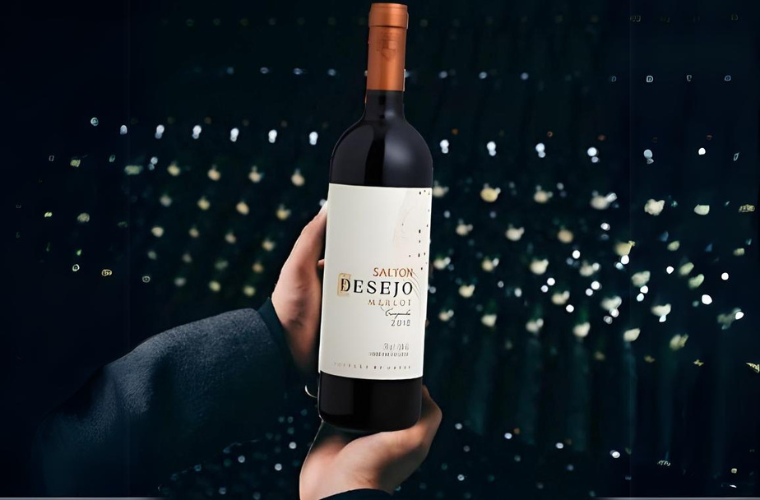
The delivery aspect is very positive and recognized by the market. For this reason, we can emphasize the solid quality over the years, especially linked to the sparkling wines and a question of identity. Salton manages to express very well what Brazilian sparkling wine is all about, with its freshness and tropicality.
To expand the range, for example, we can mention a product that focus on cocktail shops, like Lunae Clericot, which looks at the drinks aspects. These are elements that speak to the market, with variations of rosé products, breaking away from the classic.
We can also mention environmental projects since Salton is a great reference in practices focused on environmental and social issues.
We have a strong focus on making sparkling wines with elements with the right balance in terms of acidity and fruit. We always prioritize the fruit aspect over greater contact with the yeast, which makes our sparkling wines easy to drink and easy to pair.
When talking about our wines, we can emphasize the care we take to avoid having a product that hides the purpose of each region, but rather that always enhances it, with an aspect that is always more prominent in the wood. They are also less alcoholic products, in the 13.5% or even 13% range, so that they get easier to drink.
All of our manufacturing facilities are very modern, and we work with technology from Italy and Germany, since a lot of the equipment manufactured here doesn't have the same expertise as the processes there.
We always have a factory renovation budget, where we look to add elements that improve the quality of the product - as well as situations that improve our productivity processes or reduce the waste that can be generated in our day-to day work.
We have good quality programs with our partner producers, and we can map the raw material by region, climate and variety by producer. All the information that was once subjective is now based on portfolio definitions with data collected throughout the harvests.
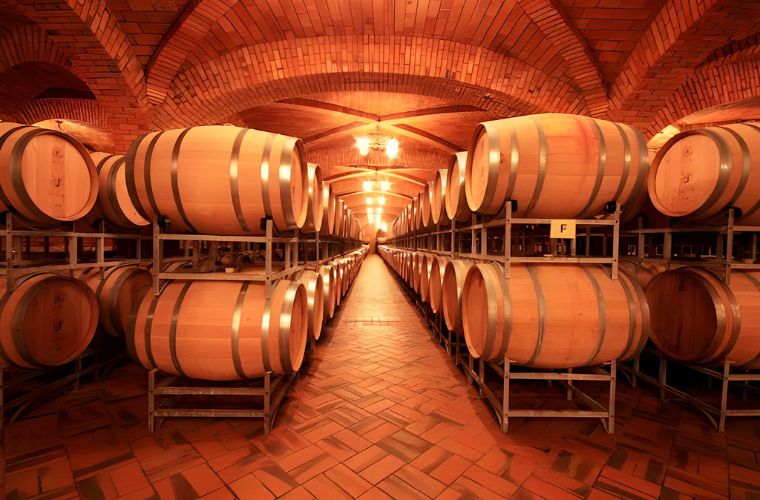
We have our own elements, which we put into each product, combined with the experience and background of each winemaker. Salton has a broad and diverse winemaking team, with experience in different markets, and this gives us a vast vision of the company's possibilities.
And, of course, there is also the learning curve about winemaking, about each vintage being a unique vintage and the challenges we have in maintaining quality, as well as the identification and touch of each winemaker with their knowledge. All strategic winemaking decisions are first discussed by a collegiate body of winemakers. Then, they are definitively validated by the technical board.
There are a number of important initiatives, such as the acquisition of lighter bottles, which use less glass. There is also the scenario of manufacturing processes with the energy matrix all directed towards renewable sources, where we are converting our forklift trucks to electric ones rather than gas and we have converted our entire fleet of commercial vehicles to ethanol.
In addition, we are looking closely at the viticulture area, taking readings of the biome, and cataloging the environment. All the fauna, preservations, the very research we carried out with UCS on CO2 suppression, the Campanha biome's native vegetation, which was something unknown, has become public knowledge.
Fertilizing the soil correctly so the grapes acclimatize better, and we also use less pesticides. This policy, which we've had for a few years now, has reduced the use of herbicides in our own vineyards and changed the philosophy of implementing fungicides, using weather stations.
So, everything got more based on data, before using fungicides simply because we believe we might have a more or less humid climate. All these points change the actions to be less subjective and more based on data.
Salton has invested in actions aimed at increasing sustainability in the production of its products, aiming to have the least impact on the environment, optimize natural resources, preserve biodiversity, and implement good land use practices.
Within this, we can list initiatives such as automation from the field to production processes, data science, intelligent fermentation of sparkling wines, among others, such as the use of bottles with less glass. Each project uses technology and innovation to maintain the centuries-old quality of production, based on the concept of viticulture 4.0.
We understand that one way of making sustainable innovations in viticulture possible is to develop them together with universities, in partnership with institutions such as the Federal University of Santa Maria (UFSM) and the University of Caxias do Sul (UCS). Innovations in the preservation of biodiversity and the implementation of good land use practices contributed to the 'Study of the balance between the biome and land use', a project that brought together research and science and led to an innovation that reduced the use of herbicides by 99% in Salton's vineyards, with natural pest control techniques, developed thanks to the partnership with UFSM.
The company also launched an unprecedented "Greenhouse Gas Inventory Study" - the first in the Brazilian sector to establish plans and targets for reducing GHG emissions. Developed in partnership with UCS, the study measured emissions at Salton's four units. In the coming years, a new stage will be implemented and will measure emissions that are not under the company's control and that the company considers to be significant for results and progress, always within the commitment to actions related to climate change.
An example of this is the annual Legado Social (Social Legacy) project, created by Salton in 2020, which annually helps organizations in the towns where the winery
operates directly. The beneficiary areas are defined by the communities, through an online, individual, and anonymous survey, disseminated through employees and at events organized by Salton. In this way, the residents themselves pointed out the needs of each town so that organizations could be chosen to meet these demands.
We also have surveys that the company conducts in the places where it operates. All the training we use in our management. This approach to rural producers, our role in raising awareness about best environmental practices and the social issues they face in their own businesses, and we map these points in our reports.
We currently actively sell to 16 countries, plus Brazil. Destinations include the United States, Canada, Mexico, some Latin countries, and countries on the African and Asian continents. The European market is perhaps the most closed to our products today because they are major producers.
We have plans for expansion in terms of marketing. Today we have less than 5% of our revenue coming from exports, and by 2030 we aim to have at least 10% of our revenue coming from the international market.
We always try to have an assertive briefing with the importer, with the market. We made mistakes at the beginning of our promotion processes for the international market, and it was this adjustment that enabled the company to improve its portfolio internally. We had a line of thought of creating comparative products to those already established in the world of wine - European wine styles, Bordeaux, to the detriment of trying to offer an expression of the Brazilian terroir. As we created this consistency with the raw material, viticulture, and oenology work, we began to change and find our profile, especially when it came to wines. Sparkling wine has always been identified with our conditions. But with wines, we had this learning curve.
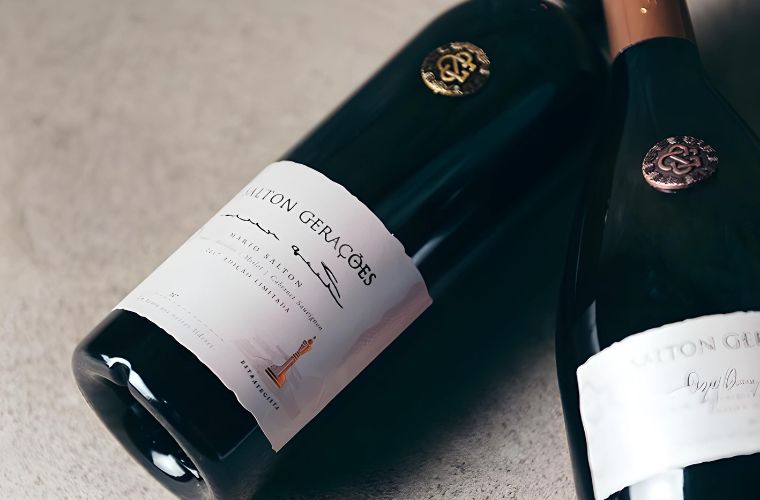
At first, we found it very difficult to present products to the international market that tried to resemble other European products, perhaps already established on the market. And there have always been some very specific adaptations, especially regarding the legal side of packaging.
Recently, what we have tried to present to the international market is the identity of the Brazilian terroir. Our wines are better received on the international stage precisely because they have the high quality that the market is looking for, because they are competitive products, but they show Brazil's vocation and style.
We have done some very nice work with the Federal University of Santa Maria (UFSM) in the Campanha region. Something that Brazil's own research structure, the related entities, didn't have information on. So, we worked on soil fertilization, calibration, and biome reading. All this so that we could have an operation that preserved the environment and provided Salton with the best possible grapes for us to produce excellent quality wines.
This knowledge was very important. It overcame challenges that we had been facing for years, in terms of quality standards and production difficulties. Because we understood that each calibration and nutrient responded better to a type of soil or grape variety, and that was very important.
Also, the work we have been doing for years on using alternatives to reduce the use of pesticides - studies with ryegrass to naturally combat weeds. The weather stations allow us to predict when and how much it will rain, so we can treat it based on data and not subjectivity.
And the whole aspect of BI(Business Intelligence), of the technical side of oenology, really changes the entire panorama of winemaking and encouraged the production of grapes. Before, we always based our qualitative and technical criteria on a few simple aspects of reading the raw material.
In the last five or six years, we've been gathering other technical criteria, such as acidity, nitrogen, and other important topics in the enochemical area that give us the potential for a much broader reading by region, by producer, and that will naturally give us a map of where the best region is to encourage the planting of a Cabernet, which is, in fact, the best grape for the company. Which producer is going to make the Talento wine, and which producer is going to make the sparkling wines? All of this is according to their technical profile, based on samples and physical and chemical analysis of the raw materials.
The company, reaching its centenary and remaining competitive, is an achievement, as being Brazil's largest sparkling wine producer. We know that in almost every country in the world, the benchmark for sparkling wine is always dominated by French or Spanish brands. Brazil is one of the few markets where these brands aren't leaders - and we've managed to do this even in the face of this competition, which has made us grow in terms of qualitative and operational delivery.
Salton's prominent position in Brazil in terms of exports, being the representative for sparkling wine exports, is another achievement. And the very good volume in terms of international awards, which also has very good repercussions on the domestic market.
It's managing to reach almost 114 years old while remaining competitive and keeping its products with a very strong identity on the international market. And preserving the family values that have been fundamental to maintaining the solidity of the business.
Competitions such as the Sommelier Choice Awards are essential for us to have a critical look from a technical perspective at whether or not we are on the right track in relation to other players from all over the world.
We invest in awards that are critical, reliable, and have very good technical backing. It's a guide to our work if we're on the right track, if we need to change any technical guidelines if we're not seeing any weaknesses in our process.
And in terms of repercussions, it ends up being fundamental. It's an endorsement for the consumer because it's an award-winning product that they can trust. That's because there are hundreds of labels on the supermarket shelf, so it's important to have a seal of quality. This is important for both the domestic and international markets. By being recognized by international and serious awards, we are able to access stricter markets that sometimes we don't have the same interaction with as we would in Brazil.
[[relatedPurchasesItems-61]]
As we celebrate the enduring legacy of the Salton Family, it's evident that their journey is far from over. With a steadfast commitment to quality, innovation, and sustainability, they continue to chart new territories, both in the realm of winemaking and environmental stewardship. As they navigate the evolving landscape of the wine industry, one thing remains certain – the Salton Family's dedication to excellence and their unwavering spirit will continue to inspire generations to come. Cheers to a century of winemaking brilliance, and to many more milestones yet to be uncorked.
In conversation with Malvika Patel, Editor and VP, Beverage Trade Network
Enter your Wines now and get in front of top Sommeliers, Wine Directors, and On-Premise Wine Buyers of USA.
